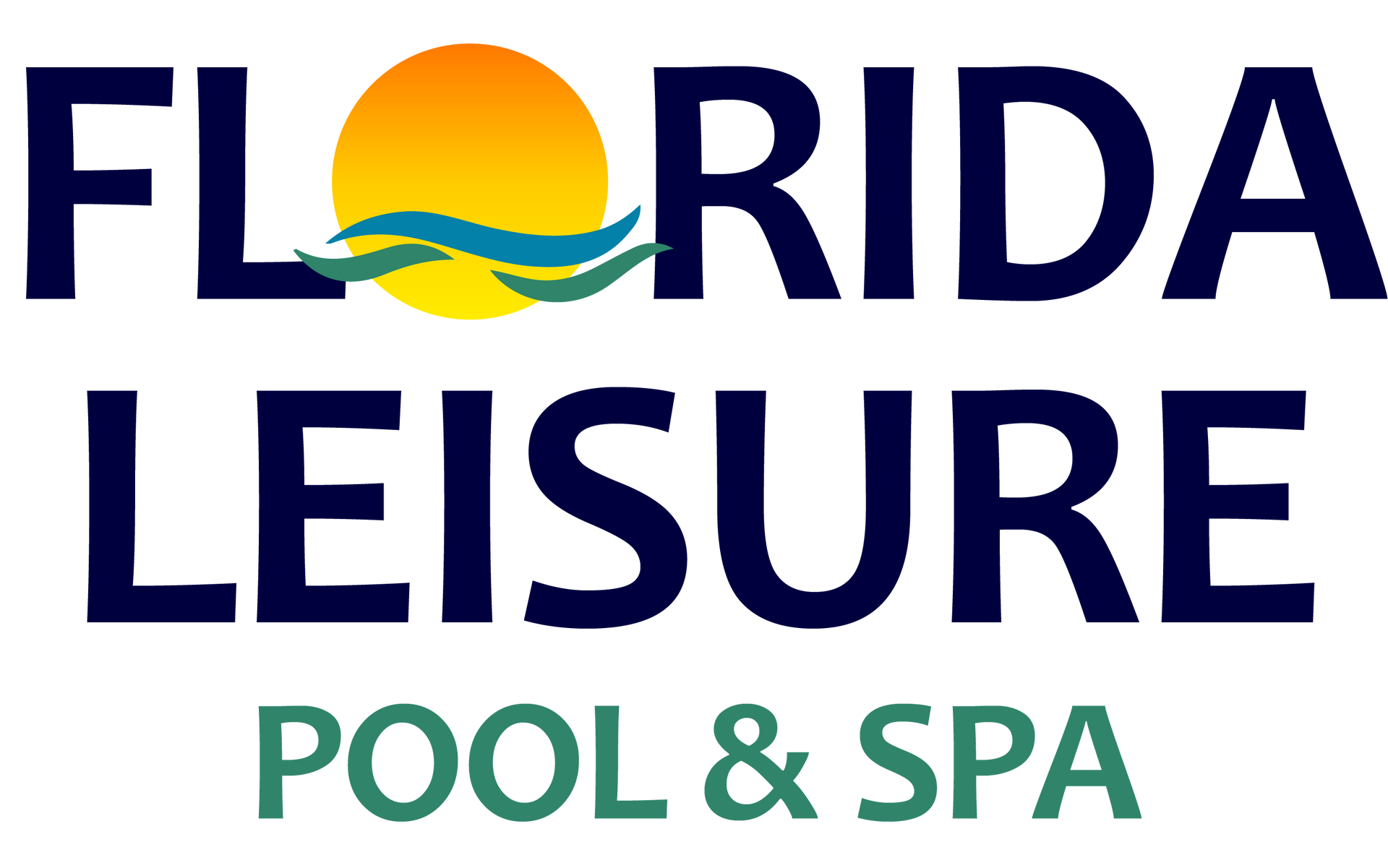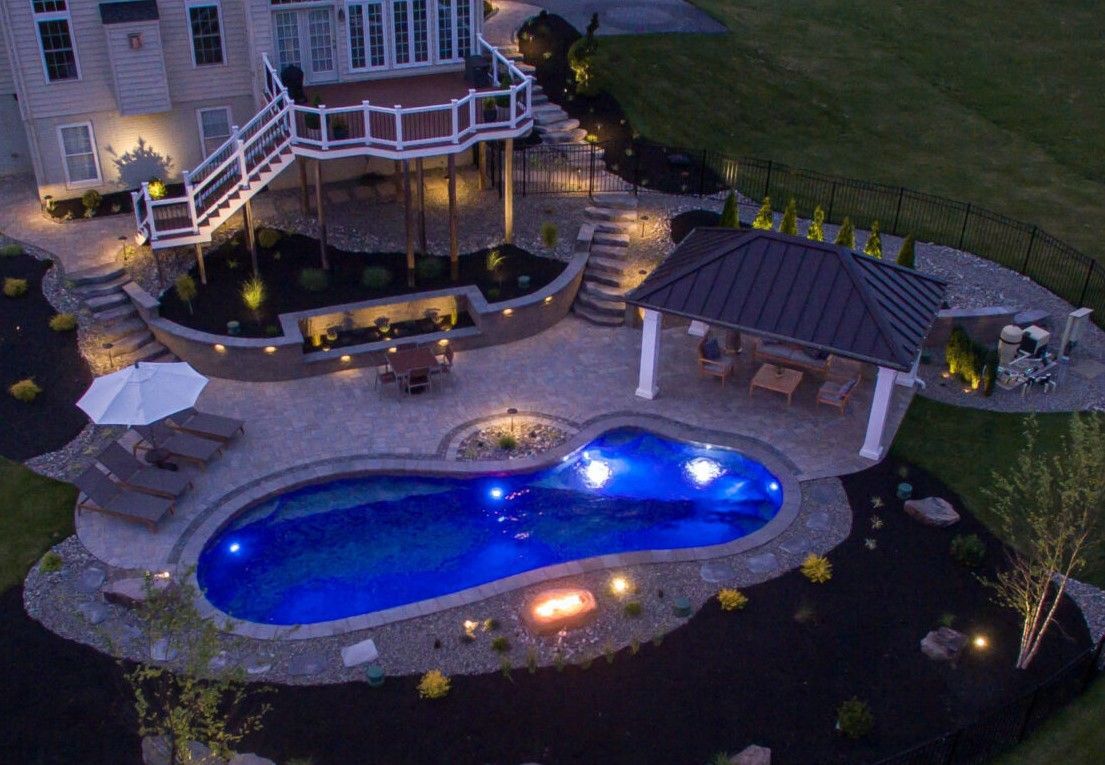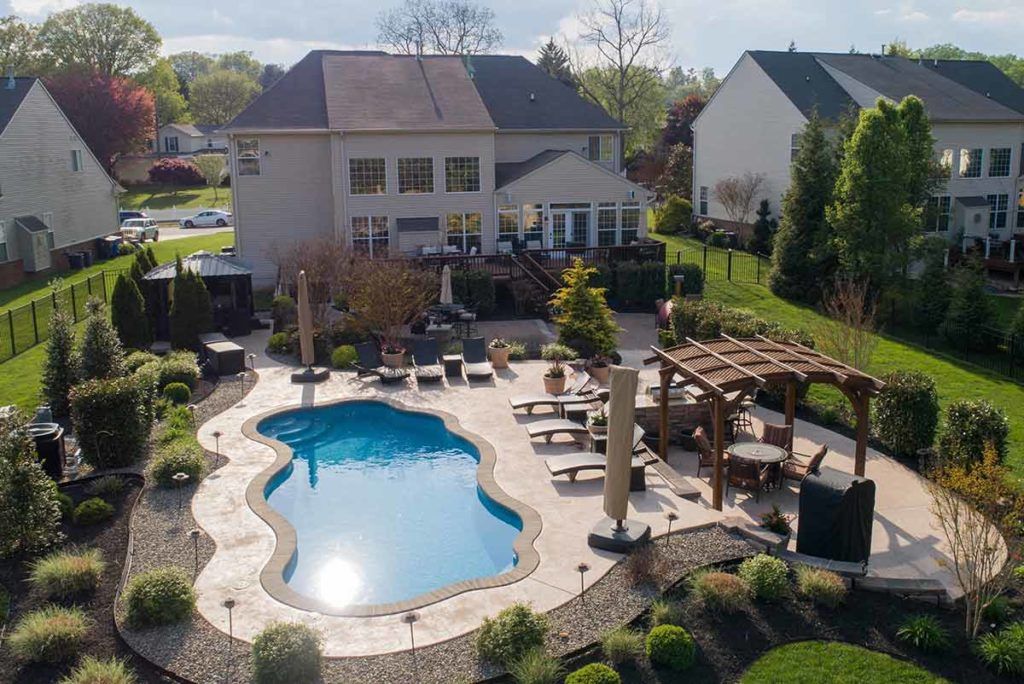Blog Layout
Buying a Home with a pool in Florida?
Many Florida Homes have pools built when initially constructed. Here's some things to look out for.

You asked us so we thought we would let you know what to do if you buy a home with a pool. When you live in Florida, having access to your own swimming pool — for most people — seems to make sense. It’s the only way to make it through the triple digit temperatures and it’s a great place to have a staycation and to entertain friends and family.
A swimming pool and your Florida home go hand-in-hand. If you’re buying a home in Florida and it comes with a swimming pool, you may have some questions that you need answered. Florida Leisure Pool and Spa understands having a pool brings with it unique advantages and some disadvantages if you’re not prepared.
What to know if you buy a home with a pool
Advantages of buying a home with a swimming pool
- It’s already there. You may find it less expensive to buy a home with a pool than to build a pool
- You won’t have to live through a construction project
- Your home will the the hot spot for friends and family
- It’s a great place to relax and unwind
- You can get, and stay, in shape no matter how hot it gets.
- You can start swimming immediately if in good working condition
Here are some disadvantages to buying a home with a pool:
- It’s used
- It may not be the size, shape and style you had always dreamed of
- There could be issues lurking beneath the surface of the pool — potential problems with the plumbing or equipment or the structure itself. You will definitely want to consult with a reputable swimming pool contractor such as Florida Leisure Pool and Spa to get the pool inspected before you make any decisions on the property.
- Depending on the age it might cost you more to maintain than a new pool would
- You could be faced with higher than necessary utility bills and higher costs for cleaning and maintenance simply because of its age and the condition of pool pumps and filters
- You might simply just not want a pool. If you love the house but don’t love the pool, what do you do? Fill in the pool? Walk away from the deal? It’s something to think about.
Contact us to schedule a swimming pool inspection prior to making any commitments on buying a home with a pool.
Contact Us
Thank you for contacting us.
We will get back to you as soon as possible.
We will get back to you as soon as possible.
Oops, there was an error sending your message.
Please try again later.
Please try again later.
Learning Center
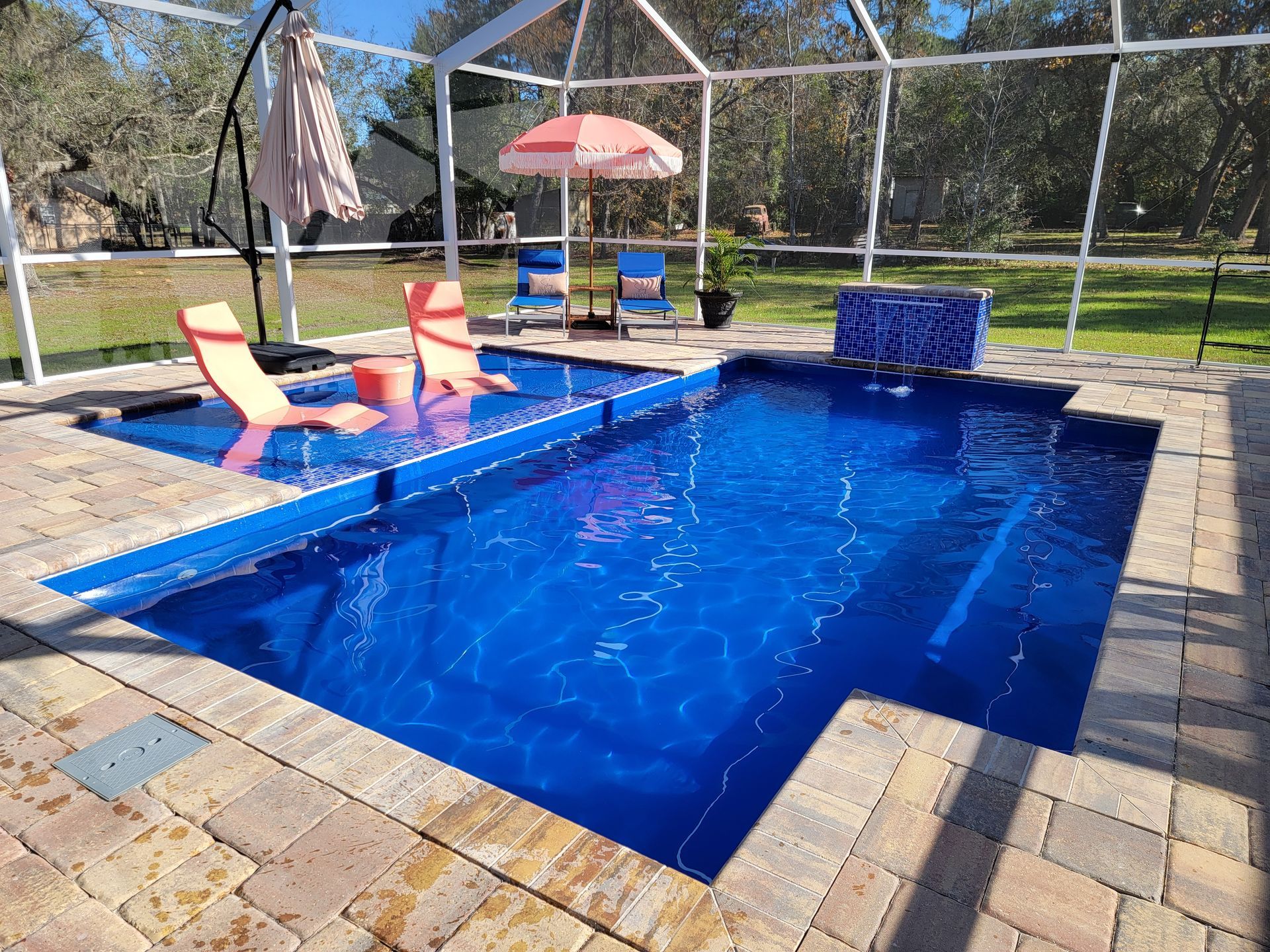
March 4, 2024
Swimming pools are not just a place to cool off; they can also be a focal point for relaxation, exercise, and socializing. When it comes to choosing the right swimming pool options and accessories, there's a wide array of choices to consider. Here's a comprehensive guide to the top options and accessories for your swimming pool.
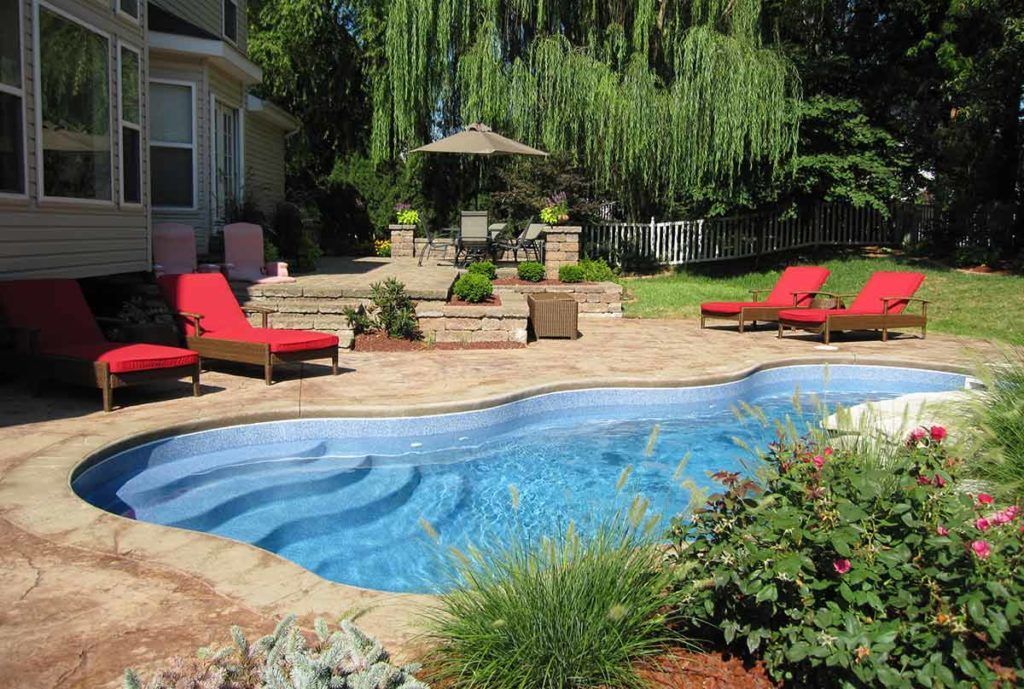
February 26, 2024
In Florida, where the climate tends to be warm year-round with mild winters, the considerations for building a pool differ slightly from regions with more pronounced seasonal changes. Here's a tailored guide for building a pool in Florida 1. Year-Round Construction: Due to Florida's consistent warm weather, pool construction can occur throughout the year. Unlike in colder climates where winter weather can halt construction, Florida offers the advantage of a more extended construction season. 2. Avoiding Hurricane Season: While construction can occur year-round, it's essential to consider Florida's hurricane season, which typically runs from June through November. During this period, there's an increased risk of severe weather, including heavy rainfall and strong winds, which could delay construction and affect the quality of work. Therefore, many homeowners prefer to schedule pool construction outside of hurricane season to minimize potential disruptions. 3. Off-Peak Construction: Similar to other regions, pool construction in Florida may experience peak demand during the spring and early summer months when homeowners are preparing for the warmer weather. Scheduling construction during the off-peak season, such as fall or winter, may result in cost savings and greater availability of contractors. 4. Consideration of Pool Use: In Florida, where warm temperatures are common year-round, the timing of pool construction may be more about personal preference and lifestyle than weather considerations. Homeowners may prioritize having the pool ready for specific events or seasons, such as holidays or the arrival of guests. 5. Permits and Regulations: Florida has specific regulations and permitting requirements for pool construction to ensure safety and compliance with local codes. It's essential to factor in the time needed to obtain permits and approvals from local authorities when planning the construction timeline. 6. Landscaping and Maintenance: When building a pool in Florida, consider landscaping options and maintenance requirements tailored to the region's climate. Choose plants and materials that can withstand the heat and humidity, and plan for regular maintenance to keep the pool area in top condition year-round. 7. Contractor Experience: Given the prevalence of pool construction in Florida, there's a wide range of experienced contractors available to choose from. Take the time to research and select a reputable contractor with a proven track record of quality workmanship and customer satisfaction. 8. Enjoyment Year-Round: One of the significant advantages of building a pool in Florida is the ability to enjoy it year-round. Whether it's cooling off during the hot summer months or relaxing in the mild winter weather, a pool in Florida can provide endless enjoyment for homeowners and their families. In summary, building a pool in Florida offers the advantage of a warm climate conducive to year-round construction and enjoyment. By considering factors such as hurricane season, off-peak construction, permitting requirements, and contractor availability, homeowners can plan and execute a successful pool project that enhances their outdoor living space and lifestyle.
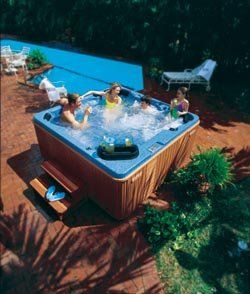
February 17, 2024
How do I take care of my Hot Tub? Below are some very important Hot Tub maintenance reminders, tips, and tricks. This is your friendly reminder of the importance of keeping your hot tub clean, balanced, and working properly. Caring for your hot tub can be an easy task, especially when you follow the five secrets to healthy hot tubs below. These tricks will help extend the life of your hot tub and maintain clean and healthy water to enjoy a warm soak. Maintaining good water circulation through the filter: Similar to a swimming pool, a hot tub’s cleanliness is dependent on water circulating through a clean filter with ease. We recommend cleaning the filters weekly or more if you use the hot tub regularly. The spa filter is typically located under the skimmer and hot tubs may have from 1 to 5 filter elements. Remove the filter elements and rinse them out thoroughly, getting deep into the pleats. Skin cells and body oils are usually white and do not show up as "dirty" on a filter element. Inspect the filters regularly to determine when it is time to replace them. Buy new filters annually, or more if the cloth appears loose, if the bands that hold the pleats together are broken, if it is taking longer to get it clean, if the heater does not heat as well as it used to, or if the water stays cloudy. If your hot tub isn’t heating like it used to, try cleaning the filters, or running the hot tub without any filters in it at all. If it heats up, it is time for new filters. Balance your water chemistry: The secret to keeping hot water in balance is to test the water regularly. Test your water 2 to 4 times per week depending on how often you use the hot tub and balance the pH, alkalinity, calcium hardness, and sanitizer levels every time. We recommend doing this twice a week, plus each time you get out of the hot tub. Keep a bromine floater in the hot tub, and use a capful of shock oxidizer each time you are done using the hot tub. Use pH Up and pH Down to keep your pH and alkalinity in line to prevent scaling on the spa and itchy skin. Dump and refill quarterly: A hot tub is a very small body of water, especially as compared to the human bodies we put in it. In addition to weekly chemical adjustments and filter cleanings, it is recommended that you drain and refill with fresh water every 3 months. Shower before use: Skin cells, sweaty bodies, body oils, shampoos, deodorants, perfumes, oh my! All of these get in the way of keeping a hot tub clean and healthy. Foam and cloudy water are good indicators of too much yuck being introduced into your spa. Stick to a simple yet routine cleaning schedule: Create yourself a routine to handle the above maintenance items. Balance chems, wash out the filter, remove debris, dump & refill the water, and don’t forget to clean the cover too! Would you like help maintaining your hot tub? We are here for you!

February 17, 2024
The weather people tell us that we are in the midst of hurricane season from June to November. There are a lot of myths surrounding what to do with your pool during tropical weather. We hope the below information will help to clarify this. Below are 6 recommendations from the Florida Swimming Pool Association of what to do and what not to do when preparing your swimming pool for a hurricane or tropical storm. 1. DO NOT empty your pool. Keeping water in your pool provides the necessary weight to hold your pool in the ground as the water table levels around the pool rise and lower from the storm. Empty pools are at risk for pool shell popping. You do not want this to happen, pool popping makes for a very bad day. 2. IF a very big storm is threatening us and if you choose to lower your pool water level a bit, most properties in Gainesville should follow Option A: A) Lower the water level only an inch or two. Be sure that the water level is still a few inches above the bottom of the skimmer opening so as not to starve your pool pump for air. This option will be appropriate for most pools in our area. Or, B) Only if you are in a really high flooding area (defined as if your property has a big problem with standing water after a typical afternoon rain), you may choose to lower your pool by up to 1.5 feet of water (do NOT lower it any more than 1.5 feet of water). Be sure to turn your skimmer valve off so as to circulate the water through your main drain. This option is not necessary for most pools in our area. 3. Remove all pool toys and patio furniture from your pool deck and secure them safely in your garage or lanai. Please DO NOT throw them into the pool, as this may severely and permanently damage your pool surface. 4. On the day that the storm hits, turn your pool equipment off at the main breaker for that day only. Turn it back on right after the storm has passed. Do NOT leave the pool equipment off for more than the day the storm is actually passing through. You want the pool to be circulating and filtering again as soon as the danger has passed. 5. Remove all large fallen debris from the pool and skimmer baskets as soon as the storm has passed and it is safe to do so, as this will reduce the chance of debris clogging up your skimmer or main drain plumbing lines. 6. Add chlorine or shock to your pool immediately before and after the storm. And of course, safety comes first during a storm. Don’t risk your safety to do one of the above recommendations. Preparation is the key during hurricane season! After the storm passes, if you need a clean up, let us know. We would be happy to help!

February 17, 2024
In-ground swimming pools will have a positive impact on your life and your family’s life. From parties to swimming laps, to cookouts, to relaxing nights, your pool will deliver an array of benefits. Unfortunately, there will be time, effort, and expense involved in completing the project, but the payoff will be worth it! The process of building a fiberglass pool can be a fun and exciting event if you are prepared in advance for what all is going to take place. There are many steps that go into building a beautiful, professionally installed pool. Here, we’re going to give you an idea of how long each step takes, so you have a better sense of when your pool will be complete. Please keep in mind that backyard conditions, weather, or the number of workers can have an impact on the timing for the various steps to a finished pool project.
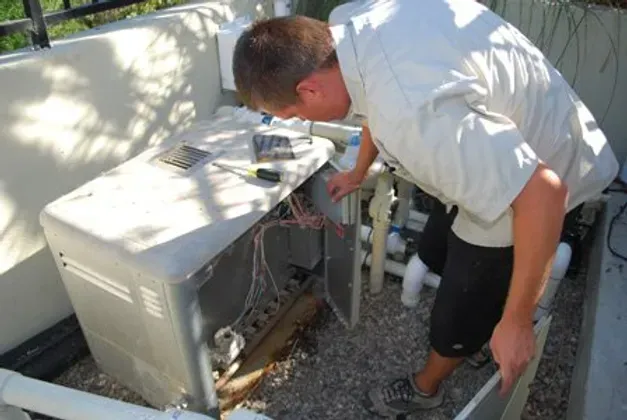
February 7, 2024
Pool heaters are a fantastic way to be able to enjoy your pool for a few bonus months in the late fall and early spring. To get the most out of your backyard investment, we recommend that you inspect and fire up your heater several times throughout the year. Below are some heater maintenance tips for you to follow: Clear all debris from the top and around the heater. Over time, debris and dirt can accumulate on the heater, reducing its efficiency. To clean the heater, turn off the power to the heater and use a garden hose with a nozzle to spray the external coil of the heater, from top to bottom. Make sure to clean the coil properly without damaging it. Check the surrounding plumbing for cracks or water leaks. Maintain good airflow around the heater. Debris such as leaves, pine needles and other outdoor elements can clog up the pool heaters internal components, reducing its efficiency. Regularly check and clean the heater's filter to ensure it's free from debris. Additionally, ensure there are no rodents nesting inside or chewing on wires Make certain the heater is sitting level and away from lawn sprinklers Clear out roof gutters to prevent rain runoff from coming down on the heater Install roof gutters above your pool equipment if you do not already have Fire up the heater, adjust the temperature, and let it run for an hour every month Keep critters away from nesting inside the heater (use moth balls and other insect deterrents) Keep your pool water chemistry in balance to prevent acidic or alkaline water from running through your heater The single most often cause of heater problems is low water flow. Here are some steps to check the water flow: Check the pool skimmer and pump basket for debris. Clean the filter if it is dirty. 9 OUT OF10 TIMES THIS IS THE PROBLEM! Call us and we can give your filter a deep cleaning or you may need to replace your filter element: 352.373.0612 Check the water level in the pool. If it is too low, the pump may not be able to pull enough water through the heater. If your heater has an error code such as the following, call us and we will dispatch a technician for the repair. Let the office know the code you are experiencing. E05 High Limit Switch E06 Open Pressure Switch E07 Low Gas Pressure E08 Ignition Failure E09 Flame Failure Other issues that can cause heater issues are electrical or gas supply in which case you definitely want a professional. However, if propane is your fuel source, make sure the tank isn't empty! At Florida Leisure Pool & Spa, our technicians are trained experts to diagnose and service your heater. Call us at 352.373.0612 or email us at: service@floridapoolspa.com and let us help you.
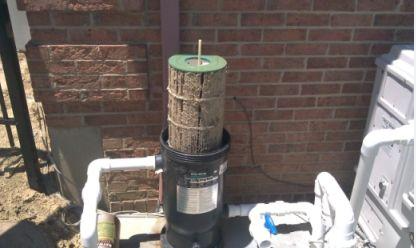
February 7, 2024
A big part of maintaining healthy pool water is a clean filter cartridge element. It is important to keep an eye on your pool filter element when cleaning your pool (also called a filter cartridge). Filters are an essential component of your pool circulation system and are integral to keeping your pool clean, clear, and healthy to swim in. Theoretically, pool filter elements can run for about 2,000 hours and should be replaced every 1-2 years. However, a filter element will not last as long when exposed to a lot of sunscreen, body oils, green dirty pool water, and other contaminants in your pool water. A filter element will also deteriorate more quickly if not kept clean regularly. Observe the condition of your filter element on a weekly basis. Clean it every few weeks year round for optimum performance. If the cloth appears loose, if the bands that hold the pleats together are broken, if it is taking longer to get it clean, or if psi doesn't go back down after cleaning, you may be ready for a new filter element. How do I know if my pool filter needs cleaning? The best way to determine if you need to clean your pool cartridge filter is by checking the pressure on the gauge. A number between 8 and 10 PSI over what a brand new filter would show means it's time to clean it. How do I clean my filter cartridges: TURN OFF ALL POWER TO THE POOL EQUIPMENT FIRST! Your equipment came with instructions to do this from the manufacturer, but in short: After turning off the power to the equipment pad, you'll need to bleed the pressure from the canister. That is the valve at the top of filter. It will spray out water relieving the internal pressure. Once the pressure is relieved, follow manufacturers instructions to remove the top of the filter canister. For more information, this is a link to video on cleaning a Pentair Clean & Clear Filter . You can also download the PDF manual HERE . Florida Leisure Pool & Spa has a full service maintenance and service division for that can take care of all your pool equipment. Reach out to 352.373.0612 or email us at: service@floridapoolspa.com Note that we offer weekly, monthly and customized service plans to meet your needs.
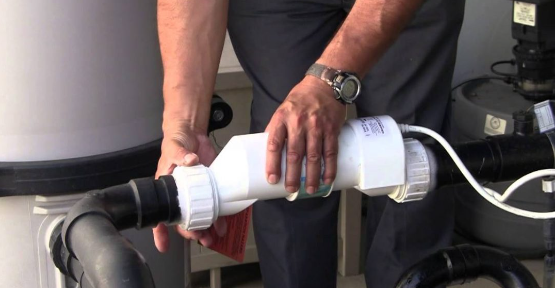
By Nancy Hine
•
February 7, 2024
Your salt chlorinator cell should be inspected and cleaned every 3 months. Scale buildup on the internal plates of a salt cell is common and expected as a part of the salt system’s chlorine generation. However this scale buildup can interfere with chlorine production if not cleaned regularly. Keeping your salt cell free of scale is an integral part of keeping your pool clean, clear, and healthy to swim. Ideally, pool salt cells can run for up to 10,000 hours, which translates into approximately 4-5 years of normal residential use. After that, the salt cell reaches the end of its life and will be ready for replacement. Inspecting and cleaning your salt cell several times a year, as well as keeping your pool clean and balanced and keeping your pump runtime and salt cell output at efficient levels, will help to get the most life out of your salt chlorinator as possible. If you have any questions about how to best care for your salt cell or any of your pool equipment, don't hesitate to give us a call. We are happy to help you with your pool in any way. You can reach us at the office at (352) 373-0612 or anytime at service@FloridaPoolSpa.com
BROWSE OUR WEBSITE
CONTACT INFORMATION
Phone:
(352) 373-0612
Email:
service@FloridaPoolSpa.com
3499 NW 97th Blvd, Suite No 7
Gainesville, Florida 32606
Business Hours
- Mon - Fri
- -
- Sat - Sun
- Closed
BROWSE OUR WEBSITE
CONTACT INFORMATION
Phone:
(352) 373-0612
Email:
service@FloridaPoolSpa.com
3499 NW 97th Blvd, Suite No 7
Gainesville, Florida 32606
Business Hours
- Mon - Fri
- -
- Sat - Sun
- Appointment Only
Content, including images, displayed on this website is protected by copyright laws. Downloading, republication, retransmission or reproduction of content on this website is strictly prohibited. Terms of Use
| Privacy Policy
